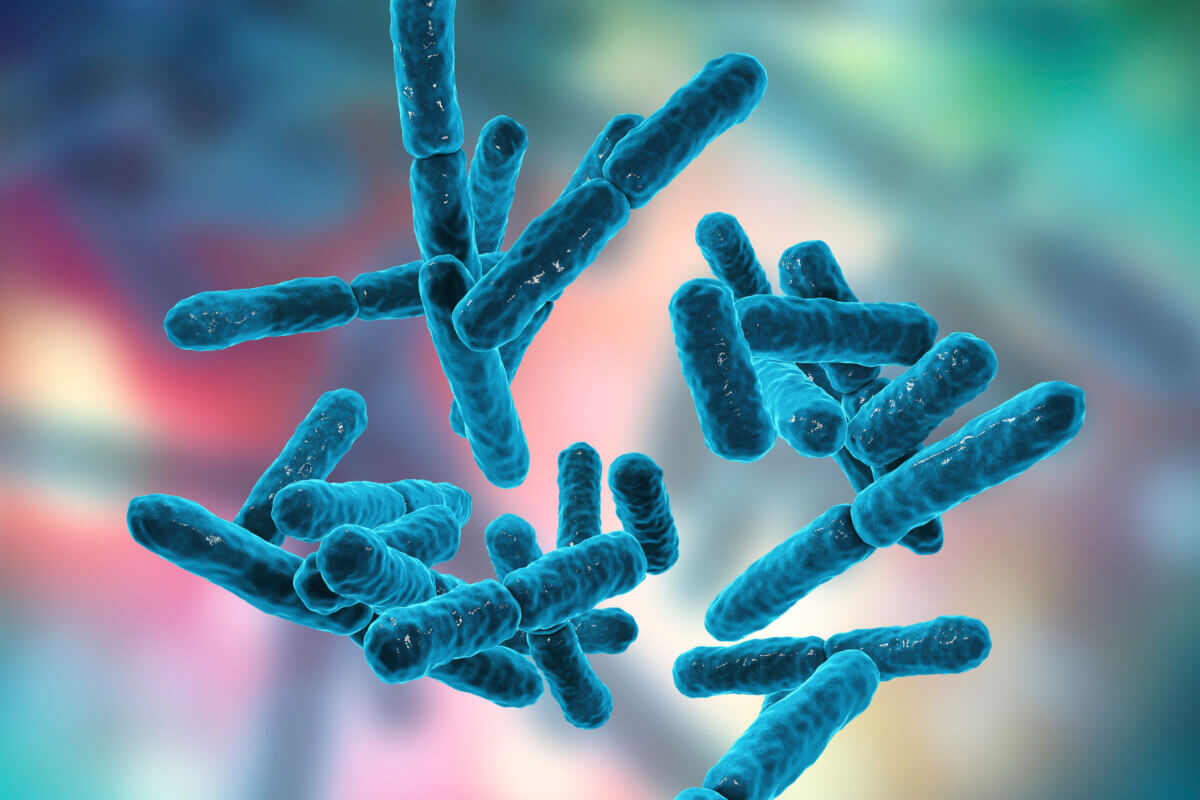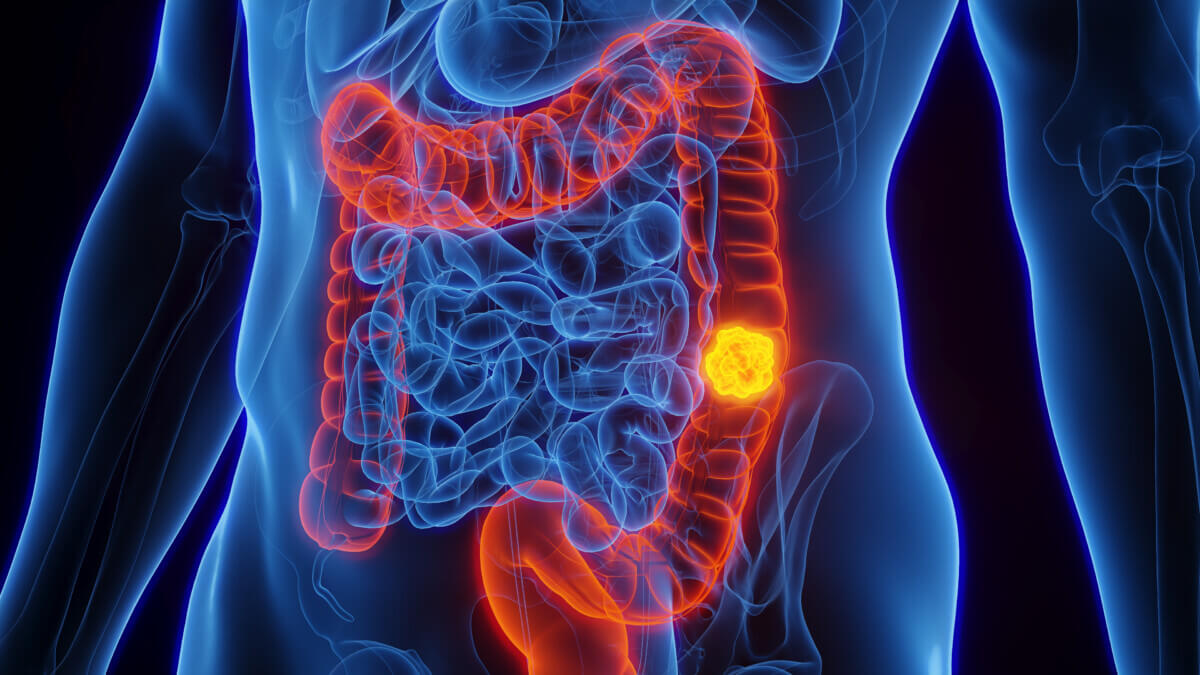
Yogurt has many health benefits. Now, new research shows it might be effective against certain colorectal cancers. (Photo by Vicky Ng on Unsplash)
In a nutshell
- Long-term yogurt consumption (two or more servings weekly) was associated with a 20% lower risk of developing certain types of colorectal cancer, specifically, those containing Bifidobacterium bacteria, which was found in about 31% of cancer cases studied
- The protective effect was strongest against cancers in the proximal (right) colon, which are typically harder to detect and have worse survival outcomes than other colorectal cancers
- Not all colorectal cancers responded the same way to yogurt consumption, suggesting that cancer prevention strategies may need to be more personalized based on an individual’s gut bacteria composition
BOSTON — For years, experts have praised yogurt’s potential benefits for digestive health, but that’s not the only punch it packs. New research suggests its cancer-fighting properties might be more nuanced than previously thought. A new study reveals that yogurt consumption may help prevent certain types of colorectal cancer, specifically those containing higher levels of beneficial bacteria called Bifidobacterium.
Colorectal cancer ranks as the third most common cancer worldwide, affecting both men and women. Prevention strategies have become increasingly important as rates rise, particularly among younger adults. While regular screening through colonoscopy remains the gold standard for early detection, researchers continue searching for dietary and lifestyle factors that might reduce cancer risk.
Research teams from Mass General Brigham and Harvard Medical School analyzed data from over 132,000 health professionals spanning multiple decades. Research published in Gut Microbes reveals a surprising link between yogurt consumption patterns and subsequent colorectal cancer diagnoses.
“Our study provides unique evidence about the potential benefit of yogurt,” says Dr. Shuji Ogino, chief of the Program in Molecular Pathological Epidemiology at Brigham and Women’s Hospital, in a statement. “My lab’s approach is to try to link long-term diets and other exposures to a possible key difference in tissue, such as the presence or absence of a particular species of bacteria. This kind of detective work can increase the strength of evidence connecting diet to health outcomes.”

Through two major studies, the Nurses’ Health Study and the Health Professionals Follow-up Study, researchers tracked more than 100,000 female nurses since 1976 and 51,000 male health professionals since 1986. Every two years, participants answered detailed questions about their health, lifestyle, and medical history. Every four years, they provided specific information about their diets, including how much plain and flavored yogurt they consumed.
This long-term tracking allowed researchers to understand not just occasional yogurt consumption but established eating patterns over decades. When participants developed colorectal cancer, researchers analyzed tumor samples for the presence of Bifidobacterium, a type of beneficial bacteria naturally present in the human gut and commonly added to yogurt products.
Among 3,079 documented colorectal cancer cases, researchers examined 1,121 for Bifidobacterium content. The findings revealed that this beneficial bacteria was quite common. Thirty-one percent of cases were Bifidobacterium-positive, while 69% were negative. For participants who ate two or more servings of yogurt per week, researchers observed a 20% lower rate of Bifidobacterium-positive tumors compared to those who ate yogurt less than once per month.
Most notably, this protective effect appeared strongest in the proximal colon, also known as the right side of the colon. Located near where the small intestine connects to the large intestine, the proximal colon poses unique challenges for cancer detection and treatment. Cancers in this area often grow with fewer obvious symptoms and are harder to spot during routine colonoscopy procedures. Research has shown that patients with proximal colon cancer typically face worse survival outcomes than those with cancers in other parts of the colon.

“It has long been believed that yogurt and other fermented milk products are beneficial for gastrointestinal health,” says co-senior author Dr. Tomotaka Ugai. “Our new findings suggest that this protective effect may be specific for Bifidobacterium-positive tumors.”
Bifidobacterium, a beneficial gut bacterium often found in yogurt, plays a role in digesting dietary fiber, maintaining gut barrier integrity, and regulating immune responses—all factors linked to colorectal cancer risk. The study’s authors hypothesize that yogurt consumption may contribute to a healthier gut microbiome, which in turn could influence cancer risk, particularly in the proximal colon.
However, because different yogurt products contain varying levels and strains of probiotics, more research is needed to determine whether specific types of yogurt provide greater protective benefits than others. Future studies may explore how dietary patterns interact with individual gut microbiomes to influence cancer risk, potentially leading to more personalized dietary recommendations for colorectal cancer prevention, though this remains an emerging area of research.
Regular yogurt consumers in the study demonstrated other healthy habits as well. They typically exercised more, smoked less, and maintained better overall dietary patterns than those who rarely ate yogurt. However, even after accounting for these factors, the association between yogurt consumption and reduced risk of Bifidobacterium-positive proximal colon cancer remained significant.
“This paper adds to the growing evidence that illustrates the connection between diet, the gut microbiome, and risk of colorectal cancer,” says Dr. Andrew Chan, chief of the Clinical and Translational Epidemiology Unit at Massachusetts General Hospital.
Beyond the general recommendation to consume yogurt, this research raises questions about which products might offer the most benefit. Not all yogurts contain the same bacterial strains or concentrations. While many products include Bifidobacterium, the amounts can vary significantly. Future research may help determine whether certain formulations provide better protection against colorectal cancer.
Different subtypes of colorectal cancer may respond differently to preventive measures, suggesting that a one-size-fits-all approach to prevention might not be optimal. This understanding could eventually lead to more personalized prevention strategies based on individual risk factors and gut bacterial composition.
The research team continues to investigate how dietary choices influence the gut microbiome and cancer risk. While these findings suggest yogurt consumption might help prevent certain types of colorectal cancer, they emphasize that it should be part of a broader approach to cancer prevention that includes regular screening, maintaining a healthy weight, staying physically active, and following an overall healthy diet.
Paper Summary
Methodology
The research leveraged two major long-term studies: the Nurses’ Health Study (tracking over 100,000 female nurses since 1976) and the Health Professionals Follow-up Study (following 51,000 male health professionals since 1986). Participants regularly completed questionnaires about their diet and lifestyle, including specific questions about plain and flavored yogurt consumption. For participants who developed colorectal cancer, researchers obtained tumor tissue samples and analyzed them for Bifidobacterium DNA content. The study used inverse probability weighting to account for cases where bacterial data wasn’t available, ensuring statistical accuracy.
Results
Among 132,056 participants followed for over 3 million person-years, researchers documented 3,079 colorectal cancer cases. Of the 1,121 cases analyzed for bacterial content, 346 (31%) were Bifidobacterium-positive, while 775 (69%) were Bifidobacterium-negative. Participants consuming two or more servings of yogurt weekly showed a 20% lower risk of developing Bifidobacterium-positive tumors compared to those eating less than one serving monthly. This protective effect was particularly notable in proximal colon cancers, which typically have worse survival outcomes than distal cancers.
Limitations
Self-reported dietary data may introduce recall bias or misclassification of yogurt intake. The study population was predominantly non-Hispanic White health professionals, which may limit generalizability to broader populations. The focus was only on Bifidobacterium, while other probiotic bacteria in yogurt may also play a role in gut health and cancer risk. While inverse probability weighting was used to adjust for missing bacterial data, potential biases remain, and additional studies are needed to validate these findings in different cohorts.
Discussion and Takeaways
This research reveals a novel connection between yogurt consumption, gut bacteria, and colorectal cancer risk. The findings suggest that yogurt’s protective effects might work specifically through Bifidobacterium-related mechanisms, particularly in the proximal colon. This specificity could help explain why previous studies on yogurt and colorectal cancer have shown varying results. As part of the OPTIMISTICC research initiative, these findings contribute to a broader understanding of how the microbiome influences cancer development and progression.
Funding and Disclosures
The study was funded through several sources, including Cancer Research UK’s Cancer Grand Challenges initiative, which supports the OPTIMISTICC research team. Additional funding came from the U.S. National Institutes of Health, the Project P Fund, and the American Cancer Society. Dr. Giannakis reported receiving research funding from Janssen and consulting fees from Nerviano Medical Sciences, while Dr. Song disclosed being a consultant for Etiome Inc. However, these commercial entities did not fund this specific study.
Publication Information
This paper was published in Gut Microbes in February 2025 (Volume 17, Issue 1, Article 2452237) as an open-access article by researchers from multiple institutions within the Mass General Brigham healthcare system, including Brigham and Women’s Hospital, Harvard Medical School, Dana-Farber Cancer Institute, and other collaborating centers. The study is part of the OPTIMISTICC initiative, which aims to understand the role of the microbiome in cancer development and treatment response.







